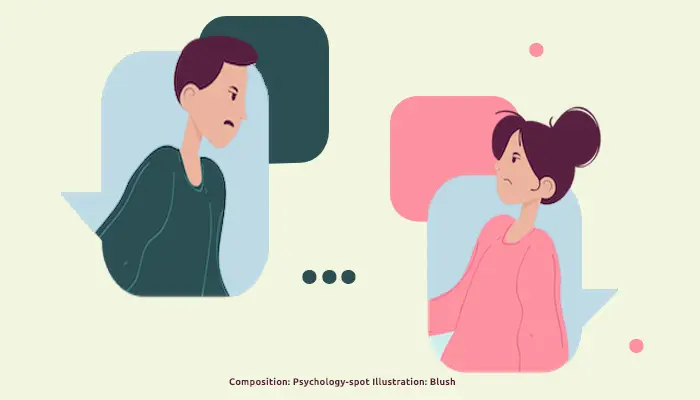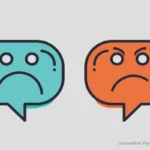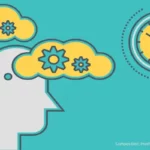
Every couple relationship comes with a certain dose of conflicts, disagreements and difficulties, often caused by the different ways of seeing the world. Sometimes these disagreements can overwhelm us and we feel the urge to speak of them. Tell family or friends about relationship problems so they can give us their opinion or perhaps just to catharsis and free ourselves from the emotional weight they represent, is it a good idea?
The theory of triangulation or the third in the couple
Murray Bowen, a pioneer of family therapy and one of the founders of systemic therapy, stated in his family systems theory that “A two-person emotional system is itself unstable, tolerating little stress without incorporating a third party.”
Bowen believed that while we are generally able to manage anxiety, when it becomes chronic it can become problematic, interfering with our ability to differentiate ourselves and respond appropriately to our partner’s emotional states. Instead, a triangle can withstand more tension as it moves between three relationships.
Therefore, triangulation occurs in response to that experience of anxiety. In practice, we “triangulate” more during periods of stress, which means that we “leave” the relationship to seek support from another person. Bowen believed that this third party can stabilize the relationship.
The triangulation theory explains why we feel the need to tell family or friends about relationship problems as we seek their support to alleviate the tension that has been generated in the relationship. However, even if the triangle is more stable than a dyad, that configuration often creates a position where one person is left out. And in a relationship, this emotional exclusion is not only very difficult to tolerate, but it can lead directly to a breakup.
Is it good to tell your relationship problems to others?
Although triangles seem beneficial at first, as anxiety subsides, the underlying problem that caused the urge to triangle is not resolved. In fact, Bowen himself stated that “Distributing the tension can stabilize a system, but it doesn’t solve anything”. That is to say, it can help us to momentarily release stress and overwhelm, but it does not necessarily solve the latent conflict.
In 2014, researchers at Auburn University analyzed 82 young couples and found that those who talked to each other about their problems were more likely to stay together over time. Instead, the chances of breaking up increased among those who told their relationship problems to friends.
By analyzing 53 consolidated marriages, these researchers discovered that the level of dissatisfaction in the relationship was the main reason that pushed people to talk about their relationship problems with a third party. However, those relationships were at greater risk of breaking down.
A smaller study of 106 couples also found that discussing romantic problems often with a friend and rarely with a partner was associated with less happiness, commitment, and love in the relationship. Instead, the relationships that flourished and strengthened over time were those in which the members committed themselves and addressed problems with their partner.
In general, seeking external help when the relationship is complicated or our partner is not receptive, is not bad in itself. Sometimes an outside perspective can help us see things more objectively or even point us to mistakes we’re making. Sometimes an outside look can help us get out of a toxic relationship.
In fact, the problem is not seeking a different opinion or tell our concerns, but that we cannot find that emotional support in our partner, that we do not feel comfortable addressing the problem, or that we hit the wall of indifference or misunderstanding. In that case, we have a much bigger problem.
Therefore, we should ask ourselves why we feel the need to tell family or friends about relationship problems. If the relationship is failing and we find it unsatisfactory or an emotional distance has established itself, ventilating the problems with others will probably not save it, unless we use the wisdom of a third person to approach the couple’s conflicts in a more assertive way that allows us to get closer to our partner to solve together the real problem that afflicts the relationship.
Sources:
Jensen, J. F. & Rauer, A. J. (2014) Turning inward versus outward: Relationship work in young adults and romantic functioning. Personal Relationship; 21(3): 451-467.
Jensen, J. F. (2014) Discussing my romantic problems with my best friend: Longitudinal examinations of relationship work in younger and older couples. Tesis doctoral. In: Universidad de Auburn.



